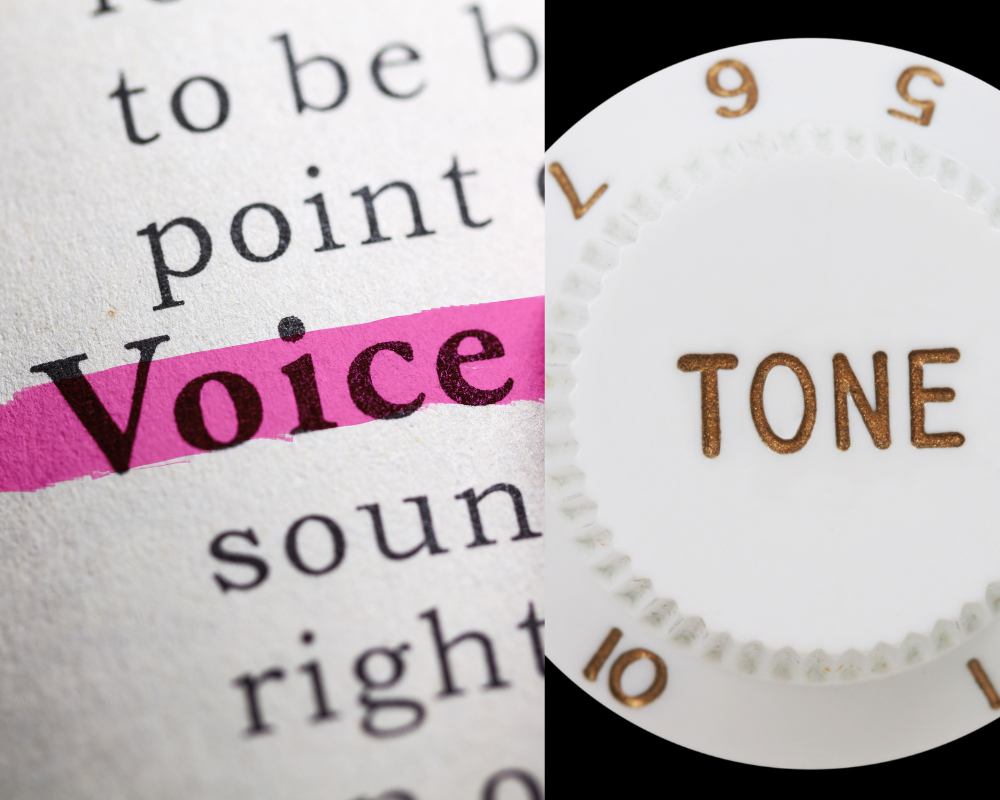Writing terms can be diffcult and confusing. We break down the difference between author voice, character voice and tone.

Voice is the author’s personal style. It's all about how you - the author - describe things; your choice of words, punctuation styles, whether you use short sharp sentences, long running sentences, or a mixture of both.
Voice isn't something that can be taught, but it is something that can be developed. An author's voice is instinctual and unique, just like a finger print, however it can take years for an author to develop their own clear voice.
So what makes a strong author voice? If you hide the cover of a book, read the opening page, and know who the author is then they've done a great job of creating a strong voice. Here are a few examples from some of my favourite authors and how I recognise their writing.
- Kiran Millwood Hargrave has a distinct poetic, melodic prose.
- Katherine Rundell writes playfully and has some of the most visual metaphors out there. I bet good money that I could pick a Katherine Rundell metaphor out of a line-up!
- Sally Rooney writes clean, simple language. Snappy sentences and short, sharp scenes of action are then followed by lengthier moments of character interiority
Think about the authors whose books you will automatically pre-order. What keeps pulling you to them? What is it about their writing that stands out?
How to find your voice:
- Determine your point of view
- Pick a consistent voice for your narrator and/or main character
- Think about your sentence structure and word choice
- Find your balance between description and dialogue
- Practice, practice, practice! The more you write, the better you'll understand your own writing voice
Character voice
Yet, an author's voice isn't to be confused with character voice. This is all about how your characters come across on the page and how they express themselves, both externally and internally. Character voice can be dictated by many things including their backstory, background, quirks and foibles, motivations and inspirations, personality traits, which can include strengths and flaws, as well as their dialect and word choice.
A character's voice will end with that book (unless it is a series) whereas the author's voice will usually remain consistent throughout all of their books. Each character in your book should have a distinct voice and this is all to do with creating a band of characters who have different interests, quirks, strengths and weaknesses etc.
The strength of a character's voice is interwined with the strength of the initial character creation. Think about some of your most memorable characters in fiction and make a note of what it is about them that stands out.
For example, Violet Baudelaire in A Series of Unfortunate Events is always rational and brave, even in dire cumstances. When she ties her hair with a ribbon, she is able to acess her technical, logical mind and come up with an invention that will save her and her siblings from harm.
Tone
Tone is a writer’s attitude toward the subject and the mood implied by an author’s word choice. Tone can change throughout a story, based on the different situations, conflicts or settings that are introduced. A clear tone can help readers to understand the emotion of a particular scene or part in a story. There are many different types of tone, from happy to sad, sarcastic to serious, creepy to light-hearted, curious to conflicted etc. Sometimes,
If you don’t convey the right tone for the right situation, readers will feel confused and unsure as to how they are meant to be feeling towards specific characters or moments in your plot.
How to find the right tone:
- Think about dialogue and how characters might express themselves in different situations
- Don’t shy away from sharing emotions and thoughts
- Show don’t tell - overexplaining things and constantly dumping information onto your readers will make the tone of your story feel quite heavy and lethargic.
Finding your author voice, character voice and the right tone are important to get right because without them, your story might lack depth and your readers could struggle to fully connect with your story.
Do you have any questions about author voice, character voice and tone? Share them in the comments below!
Comments